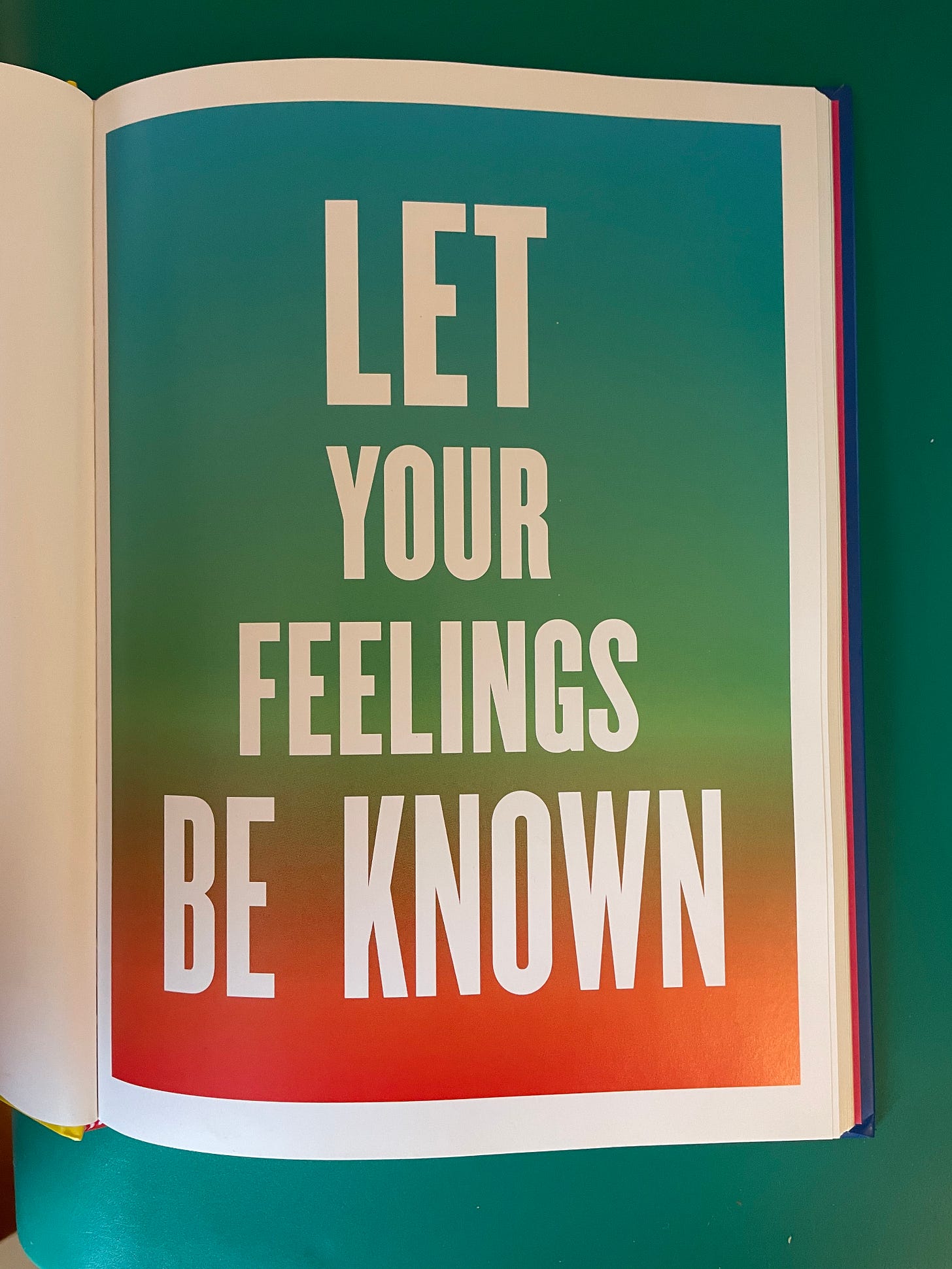More Feelings
(Image from artist Susan O’Malley’s project Advice From My 80-Year-Old Self, which I love so much.)
I encountered a few more beautiful pieces of writing about feelings and wanted to share:
First, this tender illustration on grief from The Oatmeal is really lovely.
I loved these words from Stephanie Foo’s memoir What My Bones Know, in which Stephanie quotes her therapist, Jacob Ham:
“A healthy heart doesn’t pump at the same rate all the time. That would actually be a really unhealthy heart. The healthiest hearts are adaptable, and the quicker they adapt, the better. When you start running your heart should ideally speed up quickly. Then, when you rest, it should slow down quickly. It’s the same for your emotions. When something really tragic happens, it would be weird if you were still happy, right? Or if you just sat there with no reaction. When something tragic happens, you should be there with that pain, feeling that sadness. When something unjust happens, you should feel how aggravating it is. And then, after you’ve sat with those feelings for the appropriate amount of time—and it could be an hour, or a day, or months, depending on the severity of what happened—then, you can go back to a state of rest. Or joy. Or whatever. Being healed isn’t about feeling nothing. Being healed is about feeling the appropriate emotions at the appropriate times and still being able to come back to yourself. That’s just life”
Stephanie then goes on to write:
“Dr. Ham told me, these negative emotions are not simply something to endure and erase. They are purposeful. Beneficial. They tell us what we need. Anger inspires action. Sadness is necessary to process grief. Fear helps keep us safe. Completely eradicating these emotions is not just impossible—it’s unhealthy. These negative emotions only become toxic when they block out all the other emotions. When we feel so much sadness that we can’t let any joy in. When we feel so much anger that we cannot soften around others. True mental health looks like a balance of these good and bad feelings. As Lori Gottlieb says in her book Maybe You Should Talk to Someone, ‘Many people come to therapy seeking closure. Help me not to feel. What they eventually discover is that you can’t mute one emotion without muting the others. You want to mute the pain? You’ll also mute the joy.”
Lastly, I appreciate the perspective of this quote from Hugh MacKay, shared by Joanna Goddard:
I actually attack the concept of happiness. The idea that — I don’t mind people being happy — but the idea that everything we do is part of the pursuit of happiness seems to me a really dangerous idea and has led to a contemporary disease in Western society, which is fear of sadness. It’s a really odd thing that we’re now seeing people saying, ‘write down three things that made you happy today before you go to sleep’ and ‘cheer up’ and ‘happiness is our birthright’ and so on. We’re kind of teaching our kids that happiness is the default position. It’s rubbish. Wholeness is what we ought to be striving for and part of that is sadness, disappointment, frustration, failure; all of those things which make us who we are. Happiness and victory and fulfillment are nice little things that also happen to us, but they don’t teach us much. Everyone says we grow through pain and then as soon as they experience pain they say, ‘Quick! Move on! Cheer up!’ I’d like just for a year to have a moratorium on the word ‘happiness’ and to replace it with the word ‘wholeness.’ Ask yourself, ‘Is this contributing to my wholeness?’ and if you’re having a bad day, it is.
In the next couple of weeks, I hope to share a couple of suggestions on finding a therapist—a question I get asked a lot by friends. I’ve been fortunate to work with a number of therapists over the years, which I’ve found in a few different ways.
Do you have questions about therapy or finding a therapist? I’m happy to share my perspective, and will address your questions, anonymously, in a future post.
Happy eclipsing. An excuse to listen to this, right?
-Laura






